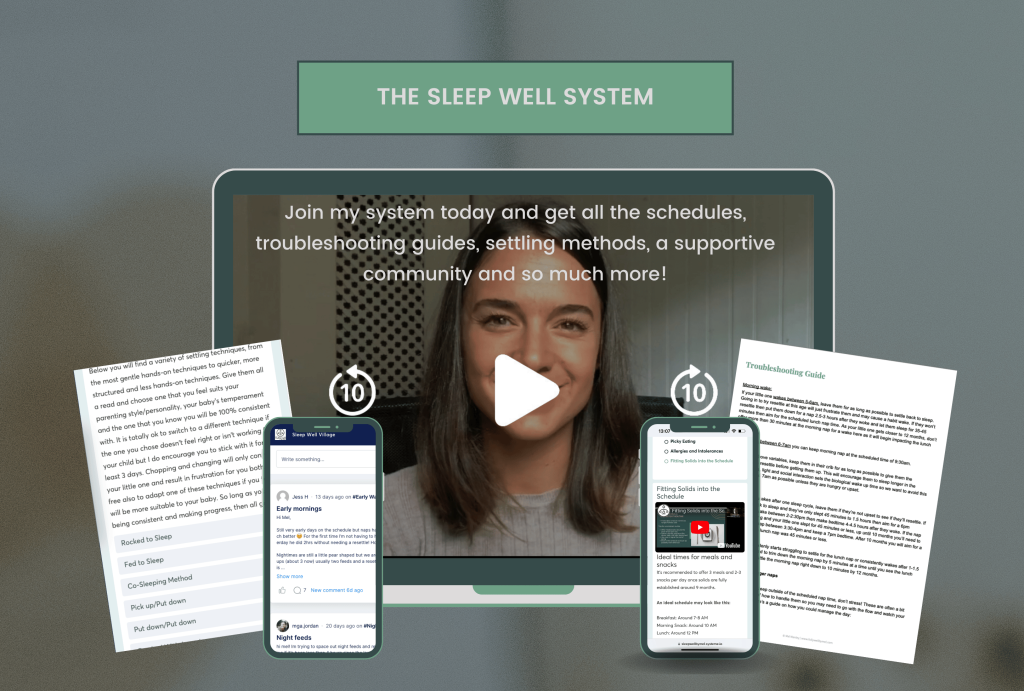For the first year, breast milk or formula is the foundation of your baby’s growth, development, and overall wellbeing. But when it comes to night feeds, so many moms are left confused, overwhelmed, and unsure about the “right” time to reduce them or night wean altogether.
Sound familiar? You’re not alone.
Here’s everything you need to know about night feeding, when (or if) to night wean, and how to make that process gentle, clear, and aligned with your little one’s needs.
The Importance of Milk for Babies
Breast milk is nature’s perfect food for babies. It provides easily digestible nutrients, antibodies, and everything your baby needs to grow and thrive. If breastfeeding isn’t an option or isn’t working for your family, formula is a perfectly suitable alternative, designed to closely mimic the nutritional composition of breast milk.
How Much Milk Does My Baby Need?
A newborn will typically feed every 2-3 hours, amounting to 8-12 feedings per 24 hours. As babies grow, they’ll drink more at each feed while spacing feedings further apart. Here’s a formula to calculate approximate daily milk needs by weight:
1 week to 3 months: 150ml x kg body weight
3-6 months: 120ml x kg
6-12 months: 90-120ml x kg
Avoid overfeeding by capping at 1000ml per day, as too much can tax little kidneys.
Night Feeding Patterns by Age
Here’s what you can generally expect for overnight feeds as your baby grows:
10-12 months: Most babies who are well-established on solids and getting enough protein and calories during the day no longer need overnight milk.
Newborn (0-4 months): Frequent night wakings every 2-4 hours are expected. Tiny tummies can’t hold much yet!
4-6 months: Stomach capacity increases, leading to longer stretches of sleep. However, “reverse cycling” is common if daytime feeds are small or inconsistent—your baby may make up for it at night.
6-8 months: As solids are introduced and established (2-3 meals a day), some babies naturally reduce to 1-2 night feeds.
8-10 months: Many little ones can drop all night feeds by now if they’re eating well during the day, though some may still need one.
Reducing Night Feedings
Not all night wakings mean true hunger. If your baby briefly suckles and dozes off, they likely just needed comfort. But if they take a full feed and then sleep a long stretch after, that suggests genuine hunger.
If you’re noticing excessive night feeds, reduced appetite for solids, or disinterest in the morning milk feed, these are signs it might be time to gently reduce overnight milk.
How to Reduce Night Feeds (Without the Stress)
Night weaning doesn’t have to feel overwhelming, and you absolutely don’t need to leave your little one to cry it out.
The key is a gradual, responsive approach:
- Start with reducing the feed closest to morning first—this helps increase daytime hunger.
- Ensure your little one is on an age-appropriate daily routine with full feeds during the day.
- Prioritise introducing protein-rich solids once your baby is ready, as this helps support longer stretches of sleep overnight.
What About Feeding Schedules?
From around 3-4 months, gently introducing a flexible feeding schedule can help ensure full feeds and reduce snack feeding. Here’s an example:
7am: Full feed
10am: Full feed
2pm: Full feed
5pm: Small feed
6:30pm: Small feed after bath
7pm: Bedtime
Combine feeds with a predictable rhythm of “feed → play → nap,” watching your baby’s hunger cues along the way.
Beyond the First Year
After 12 months, solids should become your toddler’s main source of nutrition. Breast milk still offers wonderful benefits, but too much milk (especially overnight) can:
- Reduce appetite for solids
- Disrupt sleep due to digestion demands
- Contribute to picky eating habits
That said, if you’re happily continuing with milk feeds beyond a year, and it’s not interfering with sleep or nutrition—keep doing what works for your family!
Want to Make Night Weaning Easy, Gentle, and Clear?
If you’re feeling stuck—unsure how to reduce night feeds without hours of crying or overwhelming guesswork—you don’t have to figure it out alone.
My Sleep Well System gives you step-by-step guidance to:
- Know when your baby is truly ready to reduce or drop night feeds
- Gently reduce overnight feeds without distress
- Set up your days to support consolidated sleep overnight
- Improve sleep in a way that feels good for your family—without going against your instincts
Sleep doesn’t have to be a guessing game. You deserve clarity, confidence, and better rest.
Join the Sleep Well System today and let me help you make night weaning simple, supportive, and completely tailored to your little one’s needs.

Disclaimer: Every baby is unique. Always consult your healthcare provider if you have concerns about your baby’s growth, nutrition, or feeding needs.




